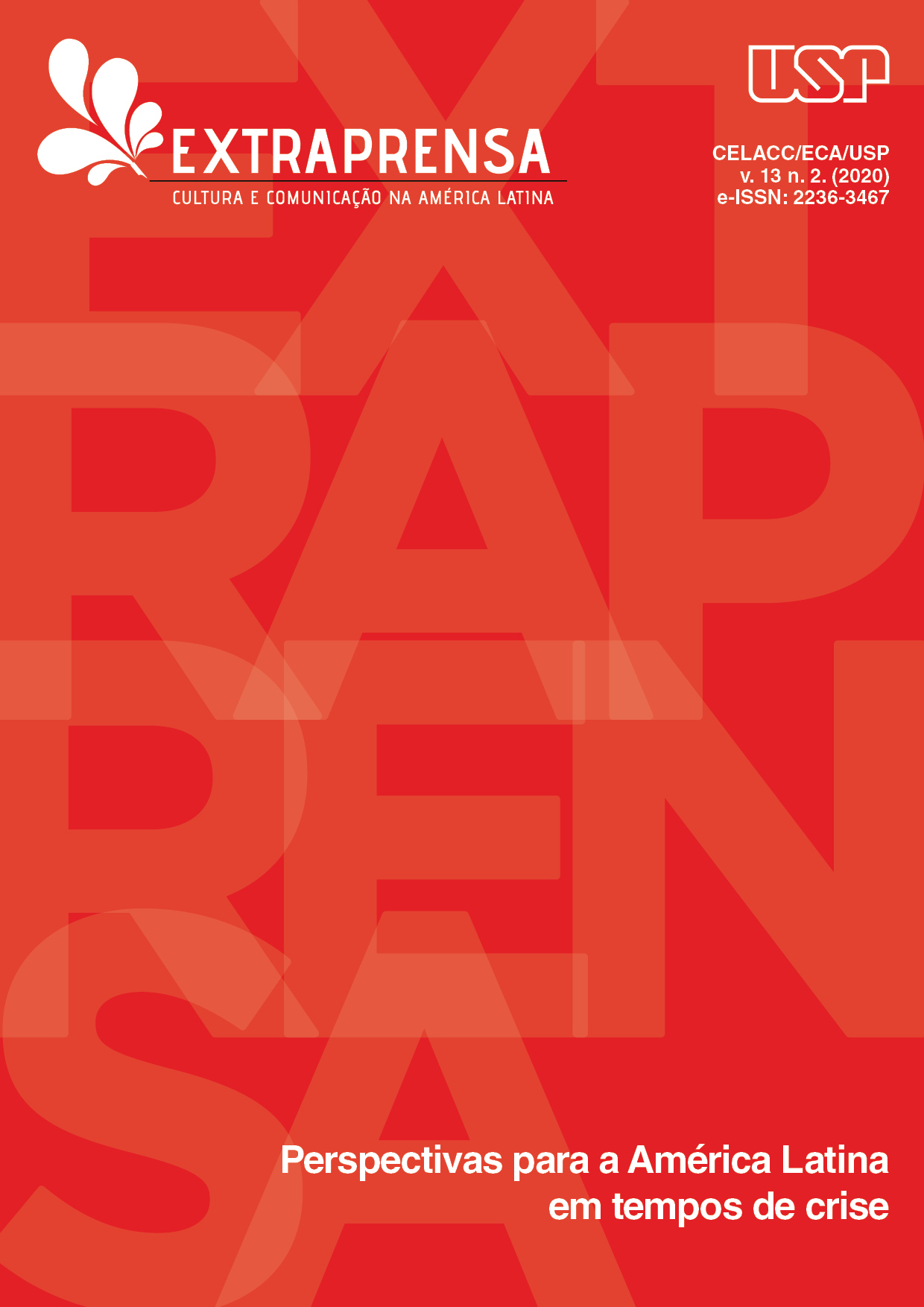Rectifying dictator or suicide? The death of the UFSC rector, Prof. Ph.d. Luiz Carlos Cancellier de Olivo, under the personality rights optic
DOI:
https://doi.org/10.11606/extraprensa2020.164753Keywords:
Governance, Media, Image Right, Human DignityAbstract
This article, motivated by the death of the rector of the Federal University of Santa Catarina (UFSC), intended to provide a debate around the concepts of governance, governance and the current legal (and social) situation, so that later, to analyze what impact these elements had on the case analyzed. It was found (using the hypothetical-deductive methodology) that while the Federal Constitution was promulgated in 1988 and (theoretically) a democratic rule of law is in place, the current mode of governance is been resembling a dictatorial state, since criminal and civil norms (including those dealing with the personality rights) are not respected and the principle of human dignity are suppressed.
Downloads
References
BITTAR, Carlos Alberto. Os direitos da personalidade. 8. ed. São Paulo: Saraiva, 2015.
BORGES, José Ferreira. Crise, ataraxia e experiência. Eito Fora, Trás-os-Montes, n. 11, 2000. Disponível em: https://bit.ly/2M56qwc. Acesso em: 27 maio 2020.
BRASIL. Supremo Tribunal Federal. Argüição de Descumprimento de Preceito Fundamental 153. Relator Ministro Eros Grau. Brasília, DF: STF, 28 abr. 2010. Disponível em: https://bit.ly/36AThEA. Acesso em: 27 maio 2020.
COMPARATO, Fábio Konder. A afirmação histórica dos direitos humanos. 4. ed. São Paulo: Saraiva, 2005.
CUNHA, Alexandre dos Santos. A normatividade da pessoa humana: o estudo jurídico da personalidade e o Código Civil de 2002. Rio de Janeiro: Forense, 2005.
DINIZ, Maria Helena. Curso de direito civil. 27. ed. São Paulo: Saraiva, 2010. v. 2.
GUIMARÃES, Carlos Antonio Fragoso. Sócrates e a descoberta de que o homem é a sua psychê. [S. l.: s. n.], 2001. Disponível em: https://bit.ly/3eBCT9W. Acesso em: 28 maio 2020.
KOSHIBA, Luiz. História: origem, estruturas e processos. São Paulo: Atual, 2000.
LOCKE, John. Ensayo sobre el entendimiento humano. México, DF: Fondo de Cultura Económica, 1986.
MAGEE, Bryan. História da filosofia. São Paulo: Loyola, 1999.
MALUF, Carlos Alberto Dabus; MALUF, Adriana Caldas do Rego Freitas Dabus. Introdução do direito civil. 2. ed. São Paulo: Saraiva, 2018.
RELATOS de um advogado na ditadura: Antônio Carlos da Gama Barandier. Revista Brasileira de Ciências Criminais, São Paulo, n. 19, p. 417-421, 1997.
SCHREIBER, Anderson. Direitos da personalidade. São Paulo: Atlas, 2011.
TEPEDINO, Gustavo. Novas formas de entidades familiares: efeitos do casamento e da família não fundada no matrimônio. In: TEPEDINO, Gustavo. Temas de Direito Civil. 3. ed. Rio de Janeiro: Renovar, 2004. p. 384-386.
Downloads
Published
Issue
Section
License
Ao submeter qualquer material científico para Extraprensa, o autor, doravante criador, aceita licenciar seu trabalho dentro das atribuições do Creative Commons, na qual seu trabalho pode ser acessado e citado por outro autor em um eventual trabalho, porém obriga a manutenção de todos os autores que compõem a obra integral, inclusive aqueles que serviram de base para o primeiro.
Toda obra aqui publicada encontra-se titulada sob as seguintes categorias da Licença Creative Commons (by/nc/nd):
- Atribuição (de todos os autores que compõem a obra);
- Uso não comercial em quaisquer hipóteses;
- Proibição de obras derivadas (o trabalho não poderá ser reescrito por terceiros. Apenas textos originais são considerados);
- Distribuição, exibição e cópia ilimitada por qualquer meio, desde que nenhum custo financeiro seja repassado.
Em nenhuma ocasião a licença de Extraprensa poderá ser revertida para outro padrão, exceto uma nova atualização do sistema Creative Commons (a partir da versão 3.0). Em caso de não concordar com esta política de Direito Autoral, o autor não poderá publicar neste espaço o seu trabalho, sob pena de o mesmo ser removido do conteúdo de Extraprensa.







